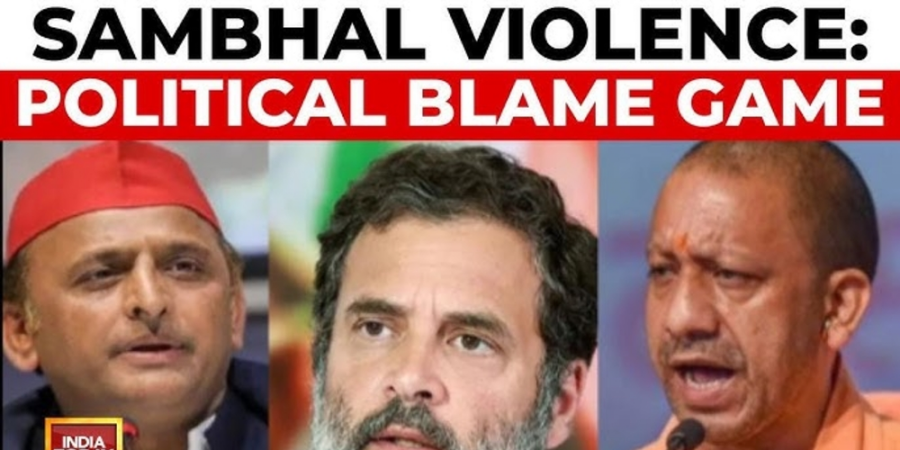List Of Political Blamings In India: A Glimpse Into The Nation’s Political Culture
India’s vibrant democracy is marked by passionate debates, diverse ideologies, and dynamic political rivalries. However, the country’s political discourse is often marred by finger-pointing, accusations, and blame games between parties and leaders. These political blamings have shaped public perception, media narratives, and election campaigns. Below is a list of some prominent instances of political blamings in India, reflecting the challenges and complexities of its democratic fabric.
1. The Partition of India (1947)
- Blaming Congress and Jinnah: The partition of British India into India and Pakistan is one of the most controversial events in history. The Indian National Congress is often accused by certain factions of compromising with the British and Muhammad Ali Jinnah, while others blame Jinnah for advocating the two-nation theory.
- Impact: These blames have fueled political and communal debates even decades later.
2. Economic Crisis of 1991
- Blaming Past Governments: The economic crisis of 1991, marked by a severe balance of payments problem, led to widespread blaming of previous governments for financial mismanagement. While the Congress-led government under P.V. Narasimha Rao introduced liberalization reforms, opposition parties blamed it for succumbing to Western pressure.
3. The Emergency (1975–1977)
- Indira Gandhi’s Leadership: The imposition of Emergency by then Prime Minister Indira Gandhi remains a controversial episode. Opposition parties have blamed her for authoritarianism and suppressing democratic freedoms. Congress, in turn, has often argued that the Emergency was necessary to maintain national stability.
4. The Babri Masjid Demolition (1992)
- Blaming BJP and Congress: The demolition of the Babri Masjid in Ayodhya led to communal riots and a blame game. The BJP was accused of inciting the event through its Ram Janmabhoomi campaign, while the Congress was criticized for not taking adequate preventive measures.
- Continuing Repercussions: The issue continues to shape political narratives in India.
5. The Gujarat Riots (2002)
- Blaming Narendra Modi: Then Chief Minister of Gujarat, Narendra Modi, faced accusations of not doing enough to control the riots. Opposition parties have repeatedly targeted him for alleged complicity, while Modi and the BJP have blamed opposition parties for politicizing the tragedy.
6. Policy Paralysis (UPA-II, 2009–2014)
- Blaming Manmohan Singh’s Leadership: The Congress-led UPA government faced accusations of policy paralysis, corruption, and inefficiency during its second term. The BJP and other opposition parties often targeted Manmohan Singh for being a "silent PM" and blamed the Congress high command for controlling governance from behind the scenes.
7. Demonetization (2016)
- Blaming BJP and Modi: The BJP government’s sudden announcement of demonetization was criticized by opposition parties for causing economic disruption, unemployment, and hardship to the poor. The BJP, in turn, blamed previous governments for allowing black money to flourish, justifying the move as a corrective measure.
8. The Rafale Deal Controversy
- Blaming Modi Government: The Congress, led by Rahul Gandhi, accused the Modi government of corruption in the Rafale fighter jet deal. The BJP dismissed the accusations, claiming they were baseless and politically motivated.
- Public Impact: The controversy became a central issue in the 2019 general elections.
9. Farmer Protests (2020–2021)
- Blaming BJP’s Farm Laws: The prolonged farmer protests against three agricultural laws passed by the Modi government sparked a blame game. Opposition parties blamed the BJP for ignoring farmers’ concerns, while the BJP accused them of misleading the protesters for political gains.
10. COVID-19 Pandemic Management (2020–2022)
- Blaming Central and State Governments: The handling of the COVID-19 pandemic became a major point of contention. The central government faced criticism for the lack of preparedness, oxygen shortages, and migrant worker crises. Meanwhile, state governments and opposition leaders were also blamed for mismanagement at local levels.
11. The Adani-Hindenburg Controversy (2023)
- Blaming BJP and Adani Group: The opposition accused the Modi government of favoritism toward the Adani Group after the Hindenburg report alleged financial irregularities. The BJP dismissed these claims, arguing they were attempts to tarnish India’s global reputation.
12. Frequent Allegations of Corruption
- Across Parties: Corruption scandals, such as the 2G spectrum scam, Commonwealth Games scam, and coal allocation scam (under UPA) and accusations against BJP governments for opaque electoral funding and crony capitalism, have fueled endless political blame games.
13. Communal Polarization
- Mutual Accusations: Both BJP and Congress, along with regional parties, have been accused of using religion and caste to polarize voters. The BJP is often blamed for promoting Hindutva politics, while Congress is criticized for appeasement politics.
Conclusion
Political blaming in India is a reflection of its competitive and multifaceted democracy. While such blame games often highlight critical issues, they also divert attention from constructive solutions. To strengthen the nation’s democratic ethos, it is essential for political discourse to evolve beyond blame and focus on accountability, transparency, and progress.


